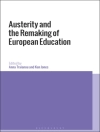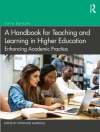Environmental education and education for sustainable development have become features of many countries’ formal education systems. To date, however, there have been few attempts to explore what such learning looks and feels like from the perspective of the learners. Based on in-depth empirical studies in school and university classrooms, this book presents rich insights into the complexities and dynamics of students’ environmental learning. The authors show how careful analysis of students’ environmental learning experiences can provide powerful pointers for future practice, policy and research. Environmental Learning will be a key resource for educators, teacher educators, decision-makers and researchers involved in education and sustainable development.
สารบัญ
What Is Environmental Learning?.- Researching Environmental Learning.- Lenses for Understanding Environmental Learning.- Dealing with Emotions and Values.- Questioning Relevance.- Negotiating Viewpoints Among Students and Teachers.- Enhancing Environmental Learning.- Erratum.
เกี่ยวกับผู้แต่ง
Dr Mark Rickinson is an independent educational research consultant, who specialises in research and evaluation, research reviews and research training (www.markrickinson.co.uk). He is also a Research Fellow at Oxford University Department of Education and the Policy Studies Institute, London. Between 1999 and 2005, he was a Senior Research Officer at the National Foundation for Educational Research. He is a former Chair of the Ecological and Environmental Education Special Interest Group of the American Educational Research Association and a past Coordinator of the FERN Environmental Education Research Network.
Dr Cecilia Lundholm is a Research Fellow at Stockholm University Department of Education, where she is a member of the Research group on Conceptual Development (www.ped.su.se/rcd), and at the Stockholm Resilience Centre, Stockholm University (www.stockholmresilience.org). Lundholm’s research interests concern communication and learning about environmental and sustainability issues in formal as well as non-formal contexts. Her projects focus on moral understanding, the understanding of natural and societal phenomena and their inter linkages, and the teaching and learning of interdisciplinary environmental education. She is engaged in the Swedish National Graduate School in Education and Sustainable Development (www.did.uu.se/gresd) funded by the Research Council’s Committee on Educational Science.
Dr Nick Hopwood is a Research Fellow at Oxford University Department of Education, where he has spent several years engaged in researching issues to do with environmental and geographical education, values, and learners’ conceptions. Initially working in secondary schools, he has more recently developed a parallel interest in graduate (particularly doctoral) education. He is a member of GERe Co (Geography Education Research Collective) and has worked with the Geographical Association on curriculum and practice development shaped by and around young people.












